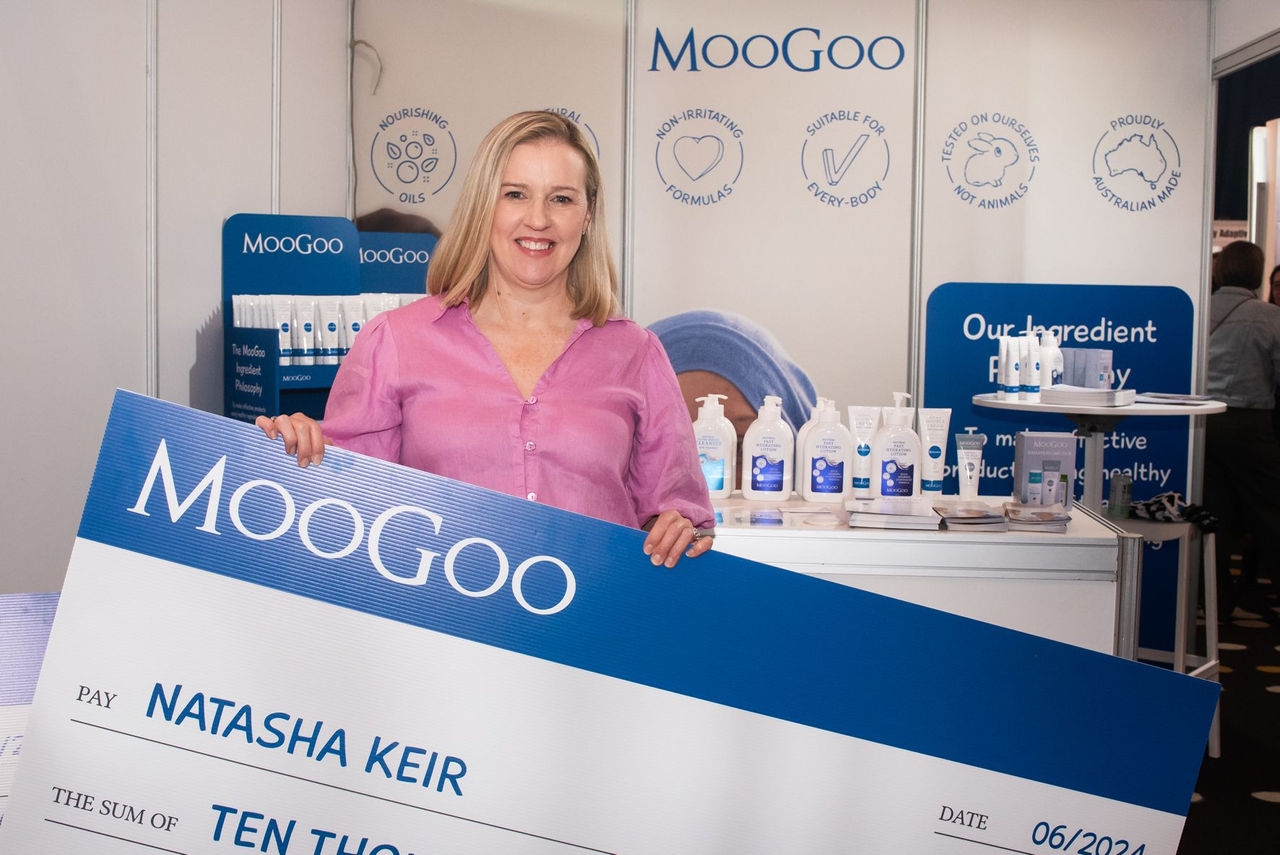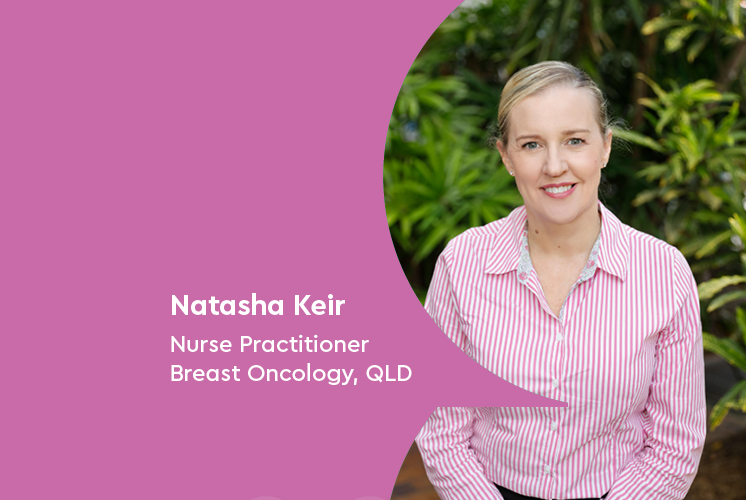In conversation with a breast cancer nurse
We spoke with Natasha Keir, Queensland’s first Nurse Practitioner in Breast Oncology with 30 years’ experience.
Why breast cancer?
“That’s easy, to make a difference to the patients (and their families) I care for. I was just nine years of age when my mother was diagnosed with cancer for the first time and I was just a teenager when cancer won the battle. I have often said I felt like I grew up around hospitals during my formative years, but this experience molded me. I have been asked over the years why I didn’t go into medicine, for me the answer is simple - it was the nurses who made the biggest difference during the toughest days for my precious mum. This is what drives me to continue to learn, strive to improve health outcomes and to provide the best care I can and to have someone say I made a difference because of the care I gave.”
What are some common questions breast cancer patients have about treatment?
- Is breast cancer treatable and survivable?
- What are my treatment options?
- What type of surgery do I need?
- How will I feel after surgery and how long does it take to recover?
- Do I need chemotherapy?
- Will I lose my hair?
- Will I get sick?
- What sort of food should I eat?
- Will I need radiation therapy?
- How many treatments will I need?
- Can I work, exercise and perform my usual activities during treatment?
- What can I do to reduce my risk of this cancer returning?”
Do you have any tips for navigating diagnosis and treatment?
“Being diagnosed with breast cancer is understandably a shock to a person and that you want it removed or treated immediately. It's okay to take a week or two to consider your next steps and make your appointments to choose the right team for you.
Breast cancer care is multi-disciplinary and it's important to find the right team of breast cancer specialists that you are comfortable with and feel you can work with to make treatment decisions. It’s also okay to seek second opinions.
You may have well meaning friends and family give you advice but remember your cancer is unique to you. Discuss any concerns/questions with your team, listen to your own voice and determine what is right for you. Take someone with you to your appointments as you will be getting a lot of information. Have a notebook to write down questions. Try not to ‘Dr Google’ (let's face it we all do), but go to your ‘team’ for information. Accept practical offers of support. If family and friends are offering to make you meals, do washing/ironing, clean the house, pick up kids from school, drive you to your appointment say YES! This will help in your recovery.”
Do you have any tips for those who have finished treatment?
“The end of treatment can be a difficult and an emotional time for some people. There will be questions around what next? It’s important to discuss with your team a follow up plan that includes appointments, ongoing breast imaging, possible regular tests, management of ongoing side effects that you may experience and advice on improving your health and wellbeing following treatment.”
What are you working on at the moment to improve patient experience?
“Being at the forefront of breast cancer care I have identified (through observations and patient reported experiences) gaps in healthcare service delivery. There is a need to improve care as patients transition out of acute treatment into longer term survivorship. Patients can often feel lost, scared and alone after their treatment has ended. I have had some of the patients report they are left with a ‘body’ they are no longer familiar with. This inspired me to commence a nurse practitioner-led Breast Cancer Wellness Clinic in Queensland, where I consult with patients at 6 weeks, 3 months, 6 months, 12 months and then annually post treatment until discharge at 5 years. This pilot program is the only one of its kind for patients with early breast cancer being run in Queensland.
As I mentioned previously, I have a passion for ongoing learning to improve patient health outcomes. It is well documented that issues with sexual health and intimacy are one of the longest lasting side effects of cancer treatment. Currently I am taking steps to complete a Graduate Certificate in Sexual Health so that as a nurse practitioner I can provide further comprehensive care in this area.”
Natasha recently won the 2024 MooGoo Postgraduate Cancer Nursing Scholarship.
Breast cancer
Find out more about breast cancer today.
This blog is provided for information purposes only. It is not a substitute for your own healthcare professional's advice. It should not be used to diagnose, treat, cure or prevent any disease. Any medical procedure or treatment carries risks. Individual treatment outcomes and experiences will vary.

